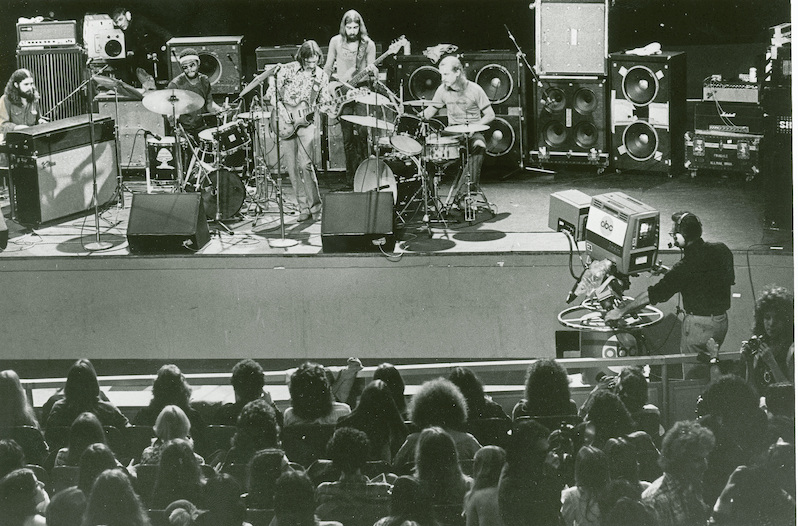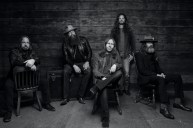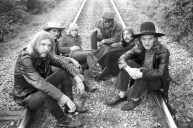In the musically-rich history of Macon, Ga., families like the Waldens and Allmans left a huge mark on American rock history with Capricorn Records. The local business with major label ties provided a global sounding board for Southern rock in the 1970's. Decades later, it remains a symbol of excellence for fans of jam bands and other forms of roots-based popular music that predate Americana.
Videos by Wide Open Country
In the 1960's, Phil Walden and his brother Alan found a niche in the music business as managers of regional R&B talents, including Clarence Carter, Percy Sledge, Johnny Jenkins and local treasure Otis Redding. Initial plans for a record label that'd revolve around Redding had to be reconsidered after the singer's 1967 passing.
Phil's music business involvement often paired him with Atlantic Records' Jerry Wexler. Through that work relationship, he discovered a different building block for a Georgia-based imprint in Atlantic session musician Duane Allman.
Beginnings
Duane, his brother Gregg Allman and the rest of The Allman Brothers Band relocated from Jacksonville, Fl. to Macon in 1969 to become the cornerstone for Phil Walden and co-founder Frank Fenter's Atlantic/ATCO Records-distributed Capricorn Records. The Allmans and their supporting cast (such as drummer Jaimoe, guitarist Dickey Betts and bassist Berry Oakley) need no introduction as classic rock artists, bluesy proto-Americana innovators or the granddaddies of the jam band scene.
Late '60s and early '70s releases by The Allman Brothers, Bonnie Bramlett, Wet Willie and others served as stepping stones for Southern rock as it emerged from the smoky clubs that hosted both country music and the blues. After the smash success of the 1971 Allman Brothers live album At Fillmore East, Phil Walden moved the label to Warner Bros. Despite the 1972 death of Duane Allman and the Allman Brothers' short-lived 1976 breakup, the Southern rock imprint barely lost a step as the home of The Marshall Tucker Band, Cowboy, Elvin Bishop, Dixie Dregs, Stillwater and even country singer Billy Joe Shaver.
From outside of the South and Southwest came heavy rock supergroup Captain Beyond, a psychedelic answer to Black Sabbath called White Witch and two of James Taylor's brothers, Livingston and Alex. Those exceptions aside, the Capricorn catalog reminds us that Southern rock was the Americana of its time--a country and rock-leaning interpretation of regional folk and popular sounds.
Although these acts probably held bluegrass masters, the Rolling Stones, country blues greats and peers like The Charlie Daniels Band in similar regard, each sounded at least a little different from their label mates. For example, The Marshall Tucker Band's guitarist and lead songwriter Toy Caldwell and Wet Willie's frontman Jimmy Hall were cut from similar musical cloth, but their bands had separate identities from their label mates.
Second Helping
Changing trends and other factors forced Capricorn's final distributor of its original run, Polygram, to cut ties in 1979. Phil Walden rebooted the label in Nashville in 1990. The success that followed built around Athens, Ga.'s own Southern-flavored jam band giants, Widespread Panic. Their label mates ranged from Col. Bruce Hampton's Aquarium Rescue Unit and Lynyrd Skynyrd to 311 and Cake. Kenny Chesney's debut album In My Wildest Dreams was also released on the label in 1994.
Decades later, the label's original run represents a creatively free time when hippies and rockers took country and roots sounds to a broader audience as Southern rockers.
The former Capricorn Sound Studios reopened in early 2020 as Mercer Music at Capricorn. The downtown Macon facility is ran by Mercer University and operates as a recording studio featuring vintage equipment from the classic Capricorn Studio plus a museum, learning environment and office space.
This story originally ran on Sept. 12, 2018.
Now Watch: 10 Health Benefits of Whiskey
https://rumble.com/embed/u7gve.v3toi7/




